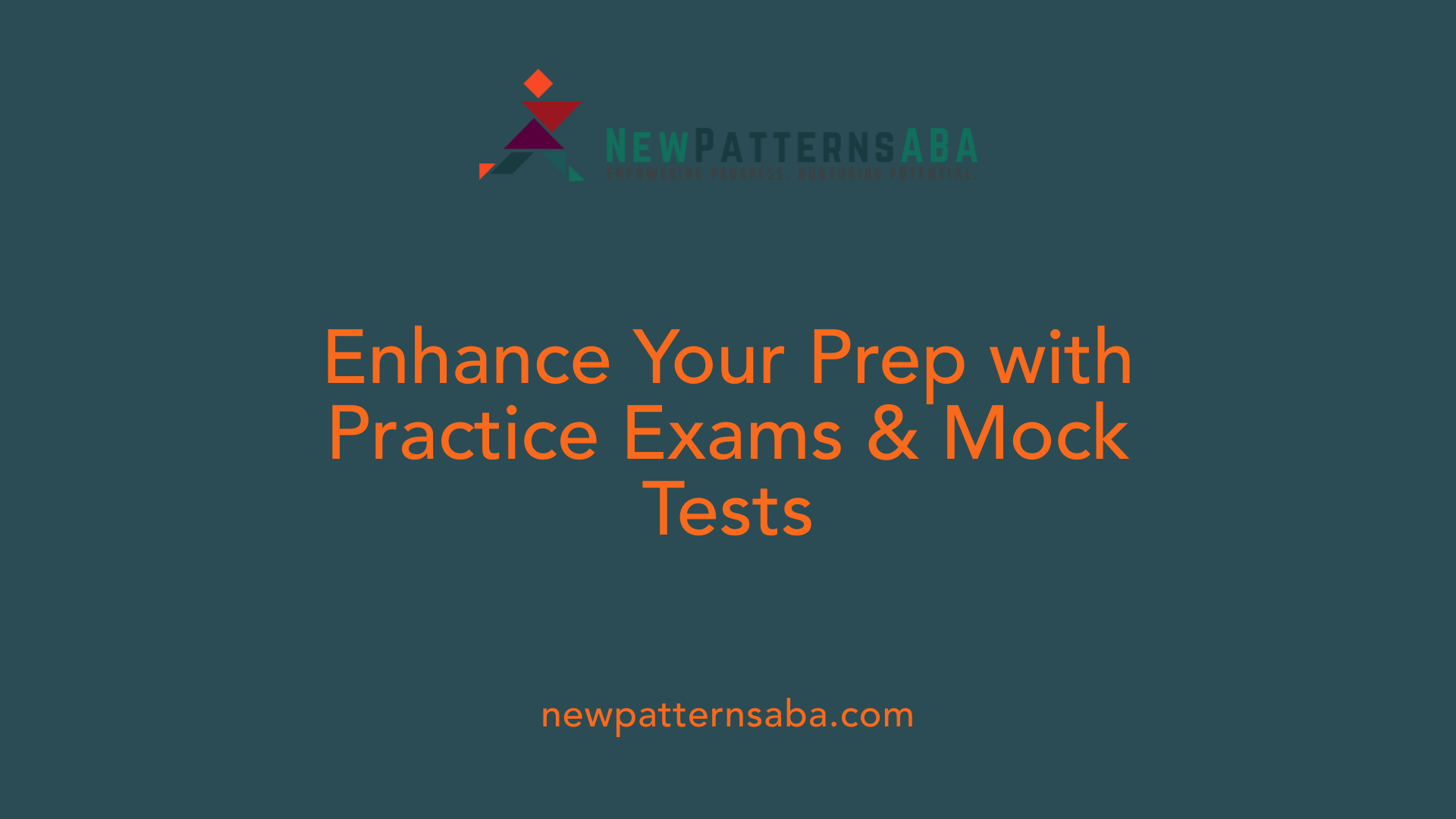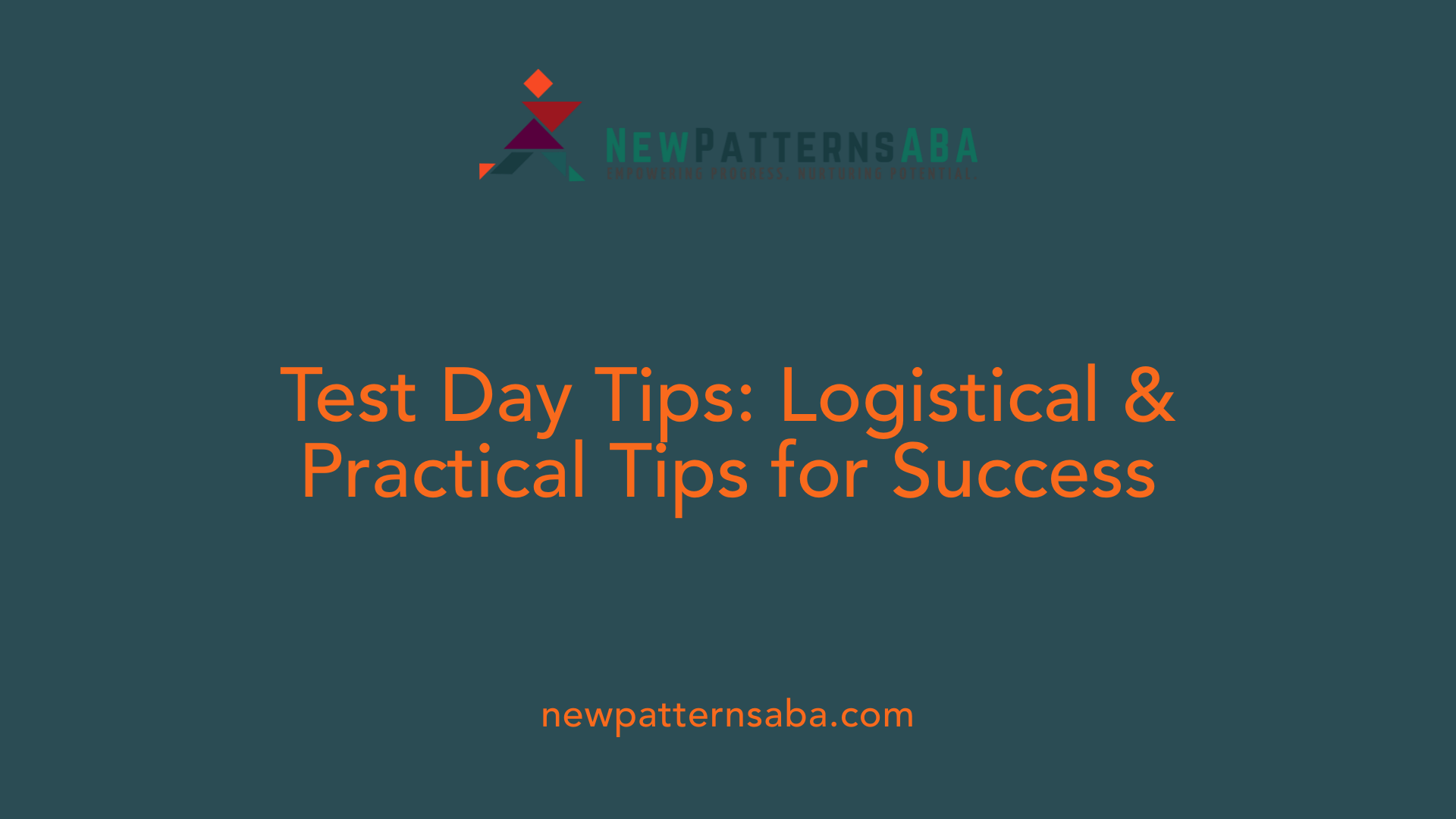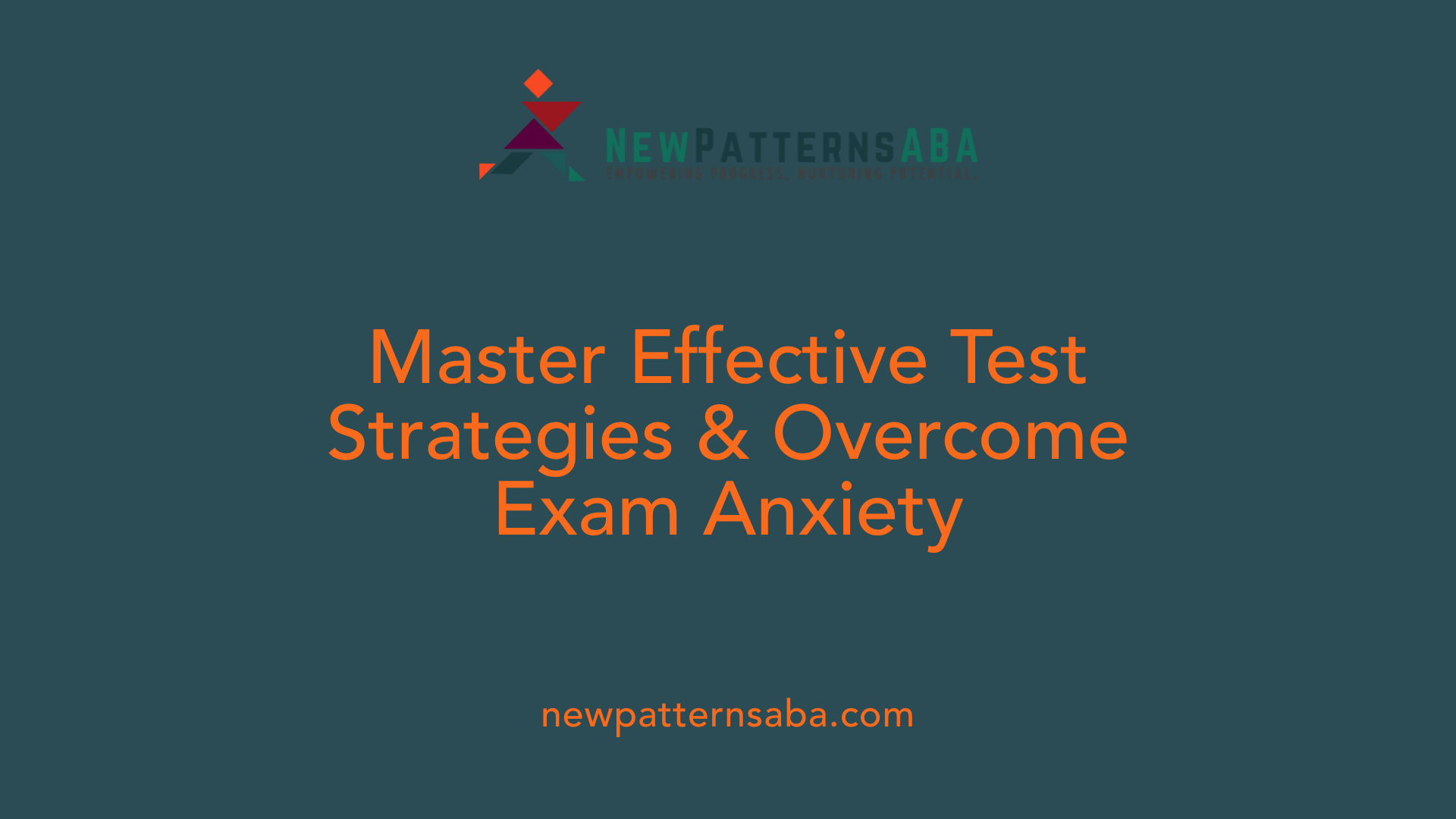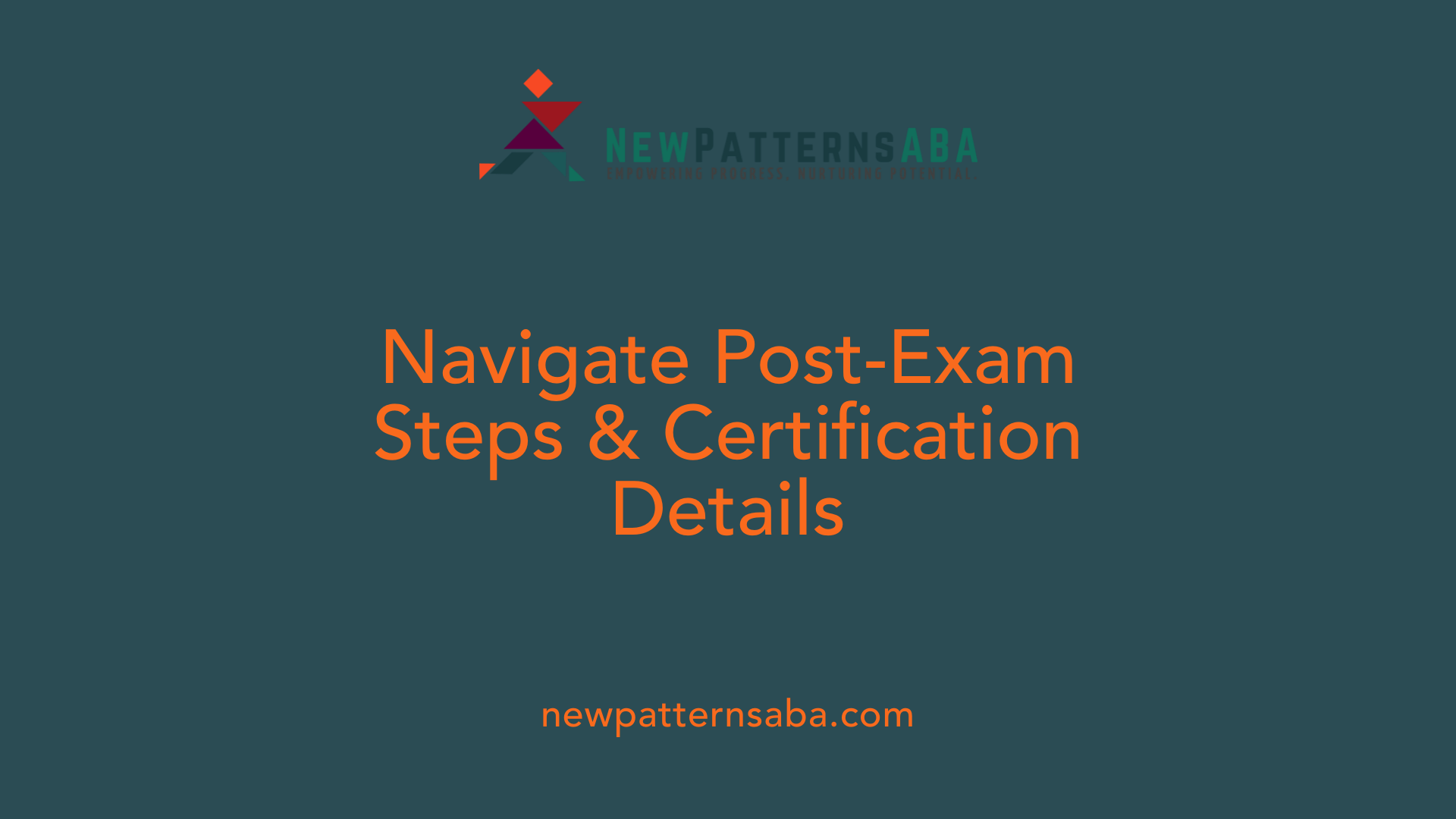Your Comprehensive Guide to Succeeding in the BCBA Examination
Passing the BCBA exam is a rigorous yet achievable goal that requires effective preparation, strategic studying, and a thorough understanding of the exam's structure and content. This article provides an in-depth roadmap, covering essential resources, study methods, practical tips, and logistical guidance to help aspiring behavior analysts excel and secure their certification with confidence.
Understanding the BCBA Exam Structure and Content
What is the structure, content, and scoring of the BCBA exam?
The BCBA (Board Certified Behavior Analyst) exam is a comprehensive test designed to evaluate a candidate's knowledge and skills in applied behavior analysis (ABA). The exam consists of 185 multiple-choice questions, of which 10 are unscored pilot questions, making the total of 195 questions but only 185 count toward the final score.
Candidates are given four hours to complete the exam, which is delivered on a computer at authorized Pearson VUE testing sites. The exam content is aligned with the BACB’s 6th Edition Task List, highlighting nine critical content areas that include over 90 specific tasks relevant to ABA practice.
The exam’s scoring process employs the modified Angoff method, a statistical approach to establishing a passing score. To pass, candidates need to achieve at least 76%, equating to approximately 114 correct responses out of 150 scored questions.
The exam evaluates skills across various domains such as assessment, intervention procedures, ethical considerations, and client safety. Its primary focus is on the practical application of ABA principles, requiring candidates to demonstrate their ability to design and supervise effective ABA programs, interpret data, and uphold high ethical standards.
Achieving a good understanding of the exam structure and content enables candidates to tailor their study strategies effectively, ensuring they are well-prepared for the exam day and confident in their knowledge of behavior analysis principles.
Familiarizing Yourself with the Test Content and Framework
What is the structure, content, and scoring of the BCBA exam?
The BCBA exam is a comprehensive assessment designed to test candidates’ knowledge and skills in applied behavior analysis (ABA). It consists of 185 multiple-choice questions, with 10 questions unscored, and must be completed within a 4-hour window.
The questions cover the BACB’s 5th Edition Task List, which outlines 92 detailed tasks across five major content areas. These include assessment, intervention, data collection and analysis, ethics, and supervision. The exam emphasizes understanding how to develop and oversee effective ABA programs while maintaining ethical standards.
Understanding the exam Blueprint is crucial, as it guides candidates on what topics are highly weighted and how to prioritize their study efforts. It’s also important to note that the exam tests application skills through scenario-based questions, requiring exam-takers to demonstrate their ability to apply concepts in real-world situations.
Scoring is done using the modified Angoff method, which helps determine the passing score based on expert judgments about the difficulty of each question. To pass, candidates generally need to score at least 76%, which translates into correctly answering approximately 140 questions out of the total.
Preparing thoroughly for this structure involves familiarizing yourself with all content areas, practicing with mock exams that mirror the difficulty level, and reviewing the BACB’s official content outline and ethics code. Being well-versed in these areas is essential for success and confidently navigating the exam’s format.
Key Resources and Study Materials
 Preparing effectively for the BCBA exam involves leveraging a variety of high-quality resources and study tools. Among the most essential is Cooper, Heron, and Heward’s Applied Behavior Analysis, a comprehensive textbook that covers fundamental principles and concepts. This serves as a solid foundation for understanding core ABA topics.
Preparing effectively for the BCBA exam involves leveraging a variety of high-quality resources and study tools. Among the most essential is Cooper, Heron, and Heward’s Applied Behavior Analysis, a comprehensive textbook that covers fundamental principles and concepts. This serves as a solid foundation for understanding core ABA topics.
In addition to textbooks, specialized study guides provide targeted review and help clarify complex topics. For example, Dr. Jamie Hughes-Lika’s study guides offer clear outlines and practice questions aligned with the exam content.
Practice exams are crucial to gauge readiness and identify areas needing improvement. Many candidates rely on mock exams from sources like ABA Knowledge Builder and online platforms designed to simulate test conditions. These practice tests help familiarize candidates with the format and pacing of the real exam.
Flashcards, such as SAFMEDS and those available on Quizlet, are excellent for memorizing terminology and key concepts. These facilitate active recall and quick review, which are vital during exam preparation.
Interactive learning through online courses, video tutorials, and virtual study groups can reinforce understanding. Platforms like ABA Wizard, which offer on-demand content and visual learning aids, support diverse learning styles.
Developing a structured study plan that incorporates reviewing ethical principles—especially those outlined in the BACB’s Ethics Code—is also recommended. Regularly completing practice questions and mock exams helps track progress and build confidence.
Beyond studying content, maintaining good health through proper sleep, nutrition, and stress management is essential to sustaining focus and motivation.
In summary, a combination of textbooks, targeted guides, practice exams, flashcards, and interactive materials, coupled with disciplined study routines, provides a comprehensive approach for succeeding on the BCBA exam.
For further guidance, searching for "Recommended study resources for BCBA exam" will yield a variety of tailored suggestions suited to different learning preferences and study schedules.
Strategic Study Techniques and Practice Methods
When preparing for the BCBA exam, adopting effective study strategies is essential. Different methods are designed to strengthen understanding, build confidence, and improve performance. A combination of practice exams, thorough review, and active learning techniques can significantly enhance your readiness.
One of the most recommended approaches is taking mock exams from reputable sources, particularly from StudyABA, which provides practice tests closely aligned with the actual exam difficulty. These mock exams serve as baseline assessments, helping candidates identify their strengths and pinpoint areas needing improvement.
Analyzing exam results systematically is crucial. After each practice test, review every answer carefully, and focus on questions answered incorrectly or with low confidence. This targeted review allows focused study of weak areas, such as ethics, measurement, or behavior interventions. Prioritize studying these topics through the Cooper Book, Mastery Modules, flashcards, or diagrams.
Active learning methods can increase content mastery. Techniques like SAFMEDS (Say All Fast Minute Every Day Shuffle) flashcards promote quick recall and fluency. Writing acronyms, creating visual aids, or teaching concepts aloud can improve understanding and retention. Applying behavioral principles to real-world exercises or fieldwork reinforces practical skills.
Consistency in studying is essential. Develop a study schedule that spans several months rather than cramming close to the exam date. Track progress using study charts or graphs—monitoring mock exam scores and study hours helps visualize improvement and maintain motivation.
Prepare for the exam day by practicing under timed conditions, simulating actual test environment scenarios. This includes practicing questions in blocks, managing time efficiently, and pacing yourself to complete all questions comfortably.
Engaging with study groups or discussion forums can offer additional insights. Explaining concepts to peers and asking questions enhances understanding. Additionally, attending workshops and review sessions provides structured guidance and keeps you accountable.
Finally, ensure you are familiar with the BACB’s 6th Edition Task List, emphasizing application of principles across all content areas. Incorporate these strategies into a personalized, consistent study plan, and you’ll be well-positioned for success on the BCBA exam.
The Importance of Practice Exams and Mock Testing

Are practice exams and mock tests available to aid in BCBA exam preparation?
Yes, practice exams and mock tests are valuable resources for those preparing for the BCBA exam. These tools serve multiple purposes, helping candidates get comfortable with the exam’s structure and question types. They replicate the real test environment, including timing and format, which helps reduce anxiety on test day.
Mock exams allow individuals to identify areas where their knowledge needs strengthening. By working through realistic scenario-based questions, candidates can better understand how to apply ABA principles. This targeted practice enables more efficient studying, as it highlights specific topics or content areas needing review.
For example, using mock exams from trusted sources like StudyABA can give insight into exam difficulty and the type of questions to expect. Regular practice with these tests builds confidence, improves time management skills, and helps develop a strategic approach to answering questions.
Including practice exams in your study routine isn’t just about testing your knowledge; it’s about training your brain to perform under exam conditions. Over time, this approach increases the likelihood of passing the BCBA exam on the first attempt, ensuring a smoother certification process.
Developing a Study Schedule and Managing Time Effectively
How can I effectively prepare for the BCBA exam within a limited time frame?
Preparing for the BCBA exam in a short period requires a strategic approach to maximize learning and retention. Start by creating a detailed study timeline that breaks down the remaining days or weeks before the test.
Identify your weaker areas early on by taking diagnostic mock exams. Focus your efforts on these topics using targeted resources like the BACB’s 6th Edition Test Content Outline and Cooper’s textbook. Allocating dedicated time each day or week ensures consistent progress.
Set clear, achievable goals for each study session. For example, aim to master specific tasks from the BACB’s task list or complete a set number of practice questions. Using high-quality study materials, including mock exams from reputable sources like StudyABA, helps you simulate the actual test experience.
Practice active recall with flashcards or SAFMEDS, and review questions regularly to track your improvements. Consider joining study groups or workshops for additional support and context.
Time management is crucial. Use a calendar or planner to schedule your study blocks, and avoid last-minute cramming. Take short breaks during study sessions to stay focused and prevent burnout.
Near the exam date, simulate test conditions with full-length practice exams to build stamina and confidence. Review your answers systematically, especially questions you answered incorrectly, to avoid repeating mistakes.
Stay informed about registration deadlines and exam requirements to prevent unnecessary stress or last-minute issues. By following a disciplined, well-organized study plan, you can make the most of your limited preparation time and increase your likelihood of success.
Logistics and Practical Tips for Test Day Success

What resources and study guides are helpful for BCBA exam preparation?
Preparing effectively for the BCBA exam involves using high-quality study materials and adopting strategic methods. Key resources include textbooks like Applied Behavior Analysis by Cooper, Heron, and Heward, which provides a thorough understanding of behavior analysis fundamentals. Study guides authored by experts such as Dr. Jamie Hughes-Lika offer structured outlines that align with exam content.
Practicing with mock exams from reputable sources like ABA Knowledge Builder and online platforms helps simulate test conditions and highlight areas needing improvement. Flashcards, especially SAFMEDS (Say All Fast Minute Every Day Shuffle) and digital options like Quizlet, improve recall speed and content fluency.
Beyond reading and practice exams, engaging in online courses, video tutorials, virtual study groups, and mobile apps like ABA Wizard can diversify learning and reinforce key concepts. Developing a personalized study plan that emphasizes ethical principles, regularly completing practice tests, and maintaining health and motivation are crucial components of a successful preparation strategy.
What logistical preparations are essential for test day success?
Proper planning before test day can significantly improve your exam experience. First, arrive early at the testing center to allow enough time for check-in and to settle in without rushing. It’s vital to bring two valid forms of identification, such as a driver’s license and a passport, to meet the BACB’s requirements.
Leaving personal items in lockers or designated areas helps minimize distractions and maintain a focused environment. Wearing comfortable clothing ensures physical ease during the four-hour exam, and staying hydrated prevents fatigue.
Familiarize yourself with the testing procedures, including how to navigate the computer-based platform and the rules of the testing site. Knowing what to expect reduces anxiety and allows you to concentrate on answering questions confidently.
Having a clear logistical plan—covering transportation, necessary documents, and understanding testing policies—can make the day of the exam smoother and more manageable, ultimately helping you perform at your best.
Test-Taking Strategies and Managing Exam Anxiety

What strategies and tips are recommended for passing the BCBA exam?
Preparing for the BCBA exam involves a mix of effective study methods and practical test-taking techniques. Developing a structured study plan that covers one to six months helps ensure thorough preparation. Focus on your weakest areas identified through mock exams, especially those with higher weights in the BACB’s Task List.
Utilize reliable study resources like textbooks, online courses, flashcards, and review manuals. Practice with mock exams from reputable sources—StudyABA’s mock tests are especially recommended because they match the difficulty level of the actual exam. Completing multiple practice tests helps you become familiar with the exam format and pacing.
Applying behavioral analysis principles to real-world situations enriches understanding and readiness. Track your progress by graphing scores from practice tests and redesigning your study schedule as needed. Make sure to review the BACB’s 6th Edition Test Content Outline and the Ethics Code, especially the sections related to professionalism and ethics.
On exam day, manage your time wisely by setting checkpoints after questions 50, 100, and 150. Mark questions you find difficult to revisit later, and answer confidently. Avoid second-guessing, especially when uncertain, to prevent losing valuable time. If permitted, take short breaks to stay refreshed. Maintaining calm and confidence can significantly improve your performance during this demanding test.
Post-Exam Procedures and Certification Process

How do I register and what are the retake policies for the BCBA exam?
Candidates aiming for BCBA certification must first ensure they meet all eligibility requirements, which include educational credentials and supervised experience. Once eligible, they need to submit an application to the BACB and wait for approval. The exam is conducted in person at authorized Pearson VUE testing centers using a computer-based format.
Rescheduling or canceling the exam can be done following the test center’s policies, which typically require at least 48 hours' notice. There might be fees involved for changes. If a candidate does not pass, they can retake the exam after the designated waiting period. It’s recommended to review performance on practice exams and adjust study methods to improve results.
Immediately after completing the test, candidates receive a preliminary notification of their scores at the testing site. The final results are confirmed via email and will appear in the candidate’s BACB account within approximately one week.
Achieving a passing score (at least 76%) leads to official certification, which can greatly enhance professional opportunities and recognition within the field of behavior analysis. This process ensures that certified professionals are well-qualified and compliant with industry standards.
Embark on Your BCBA Certification Journey with Confidence
Preparing thoroughly, utilizing high-quality resources, practicing under real conditions, and maintaining a disciplined study routine are keys to passing the BCBA exam. Remember, consistent effort over time, coupled with strategic learning and stress management, can turn your goal of certification into a reality. With the right approach and mindset, you can confidently navigate the exam process and earn your credential as a Board-Certified Behavior Analyst, advancing your professional career and making a meaningful impact in the field of behavior analysis.
References
- How TF Do I Get Ready for the BCBA Exam? - Study Notes ABA
- BCBA Exam Advice, Strategies, and Tips - StudyABA.com
- EXAMINATION INFORMATION - Behavior Analyst Certification Board
- Pass the Big ABA Exam - Trusted to beat the odds. Since 2012.
- 10 Study Strategies! BCBA Exam Prep: Handbook & Task List for ...
- How Hard is it to Pass the BCBA® Exam?
- RBT Job Duties: Key Responsibilities Explained - All Star ABA
- How to Become an RBT and Make an Impact - A New Start ABA
- Understanding the Responsibilities of ABA Therapists





